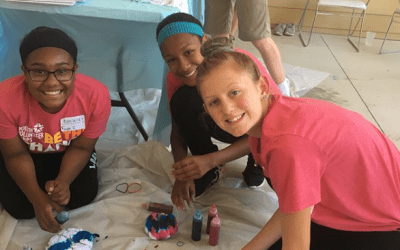Cultural Competency: Building Bridges in a Divided World

Join me for a conversation! Let’s talk about cultural competency. The world feels more divided than ever. People can seem so different. What is different can feel threatening. When we’re threatened, it’s harder to connect and feel a sense of belonging. How can we resist the forces of division and create a safer, more united world?
February 20 is the UN World Day of Social Justice. As youth who are determined to make a difference and adult allies who support them, we all have an obligation to develop cultural competence. As change makers, cultural competence means building community, healing division, and, as the UN hopes to do, pursuing justice. It’s a big concept. It calls for courage, vulnerability, and humility. Will you answer the call?
For those of us who believe service can change the world, the call cannot be ignored. To do our best work, we must bravely step out, push back, and speak up. This requires strengthening our cultural competence and developing the skills to work and volunteer alongside people with diverse lived experiences. How can we build up these muscles and feel confident when using them? Here are three things I have learned in my journey:
Start with yourself. The journey begins here and it can be hard. Changed individuals change the world. Pay attention to interactions with folks who look and live differently than you. Do a scan of friend groups, colleagues at work, or even your bookshelf. Think about teachers, coaches, and mentors. Does everyone look and think like you? Many of us live more segregated lives than we notice. Spending time with diverse groups allows us to see beyond stereotypes. Start by becoming aware.
Get comfortable getting uncomfortable. If there’s one thing to expect, it’s discomfort. Conversations about race, gender, religion, disability have long been considered taboo. But we can’t change what we won’t name. This goes beyond calling out racist slurs or overt discrimination. It’s acknowledging we’ve hurt someone, even if we didn’t mean to. It’s caring more about doing the right thing than the easy thing. Speaking up can be awkward, especially if you’re told it’s not “polite.” It gets easier with practice. Your voice matters and you’re more influential than you may realize.
Learn and do. There are more books than a person can read, more workshops than can be attended, and more TED Talks than can be watched on cultural competency. Read, listen, and learn! There are incredible resources out there (many for free!). And, don’t wait until you’re an “expert” to start acting. First of all, there’s no such thing as an expert in cultural competency. It is lifelong work. Second, there’s no perfect way to be an advocate for justice. You’ll say the wrong thing. You’ll speak when you should’ve listened. Apologize, adapt, and keep going.
There will never be enough voices standing up and speaking out against injustice. Your one small act matters. If you’re willing to take the journey, your community and your world will be forever changed.
Amanda Moser is the Director of Program Impact at YVC Headquarters. Through her work starting and supporting YVC programs, she has seen the impact and the importance of cultural competency in youth development programs. By taking her own cultural competency seriously, Amanda has changed the way she hires, the way she plans, and the way she leads.
Categories
- Reflection (6)
- YVC Alum (3)
- Guest post (7)
- International Youth Advisory Board (4)
- Youth Volunteer Post (5)
- Youth Volunteerism (57)
- Youth Volunteers in Action (5)
- Growing the YVC Network (1)
- Project Idea (1)
- Project Tips (1)
- General (11)